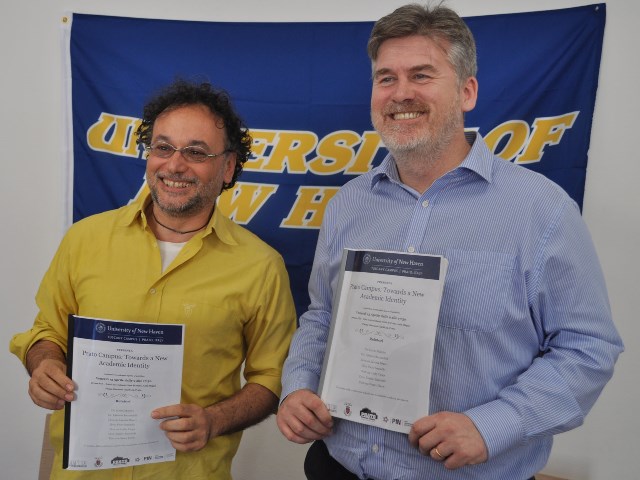Saluti i tuoi amici italiani
ciao
When using a verb of motion you follow what sentence structure?
Essere (to be) conjugated in the present tense, followed by the past tense conjugation of the main verb.
True or False: A reflexive verb describes an action that one person does to his/herself.
True
Does this sentence use the singular or plural tense?
La sua amica si chiama Lorenza.
Singular
Who is the king of Prato?
noah
Chiedi a un'amica cosa fa domani
Cosa fai domani?
True or false: when using avere the conjugated past tense verb must agree in gender and number with the subject.
False
Fill in the blank.
Marco __ ______ (vestirsi) sempre con molta attenzione.
si veste
Transform this sentence from singular to plural form
La ragazza va al mercato
Le ragazze vanno al mercato
What are the singular possessive adjectives (in both the feminine and masculine form)?
Mio, Mia, Tuo, Tua, Suo, Sua, Nostro, Nostra, Vostro, Vostra, Loro
Chiedi a un ragazza a che ora si alza
A che ora ti alzi?
Tu ____ ______ (mangiare) la pasta a pranzo?
Marco e Luca ____ _____ (partire) i per Roma.
Noi _____ ____ (essere) molto felici alla festa.
hai mangiato
sono partiti
siamo stati
Are these sentences grammatically correct? If not, correct them.
- La mio amico è molto simpatico.
- Il tuo libro è interessante.
- I mio amici vanno a scuola in macchina.
- Incorrect
Il mio amico è molto simpatico.
- Correct
- Incorrect
I miei amici vanno a scuola in macchina.
There are mistakes in this sentence; correct them.
- Il lezioni di italiano fa dormire gli studento.
Le lezioni di italiano fanno dormire gli studenti
What verb (essere or avere) is used with reflexive verbs when using the past tense?
essere
What are three ways to order a pizza?
Vorrei una pizza margherita, posso avere una pizza con la cipola, per me una pizza marinara.
What are the conjugations for these verbs?
- bere. essere, fare, leggere, vedere, vivere
bevuto, stato, fatto, letto, visto, vissuto
Use a complete sentence to describe what she is doing.

Lei si fa la doccia
1.) Il nostro amico guarda le partite
2.) I miei insegnanti vivono a Prato
3.) I loro zaini sono costosi
1.) I nostri amici guardano la partita
2.) Il mio insegnante vive a Prato
3.) Il loro zaino e' costoso
What are all of the definite articles, and when are they used
il: masculine singular
lo: masculine singular, nouns starting with s+ consonant and z.
il-> i: masculine plural
lo->gli: masculine plural
la: feminine singular
l': singular nouns starting with a vowel.
le: feminine plural
Descrivi cosa hai fatto ieri (yesterday) sera
Answers can vary.
Fill in the blanks
Ieri io ______ (mangiare) una pizza. Poi ______ (andare) al parco con i miei amici. Noi ______ (giocare) a calcio e ______ (ridere) molto. Dopo, Marco ______ (comprare) un gelato e io ______ (bere) una bibita. Alla fine, noi ______ (tornare) a casa felici.
Ieri io ho mangiato una pizza. Poi sono andato al parco con i miei amici. Noi abbiamo giocato a calcio e abbiamo riso molto. Dopo, Marco ha comprato un gelato e io ho bevuto una bibita. Alla fine, noi siamo tornati a casa felici.
descrivi la tua routine quotidiana
answers can vary
Is this the right way to describe both men in this picture? If not, why?
-La professora sono contento perché insegna all'università di New Haven.

The sentence is incorrect.
I professori sono contenti perché insegnano all'università di New Haven.
What is the meaning of all the irregular verbs we have learned, and what are their conjugations in the io form?
Avere, Essere, Fare, Andare, Uscire, Dovere, Potere, and Volere
Avere: to have, io ho
Essere: to be, io sono
Fare: to do, io faccio
Andare: to go, io vado
Uscire: to go out, io esco
Dovere: must, io devo
Potere: can, io posso
Volere: to want, io voglio